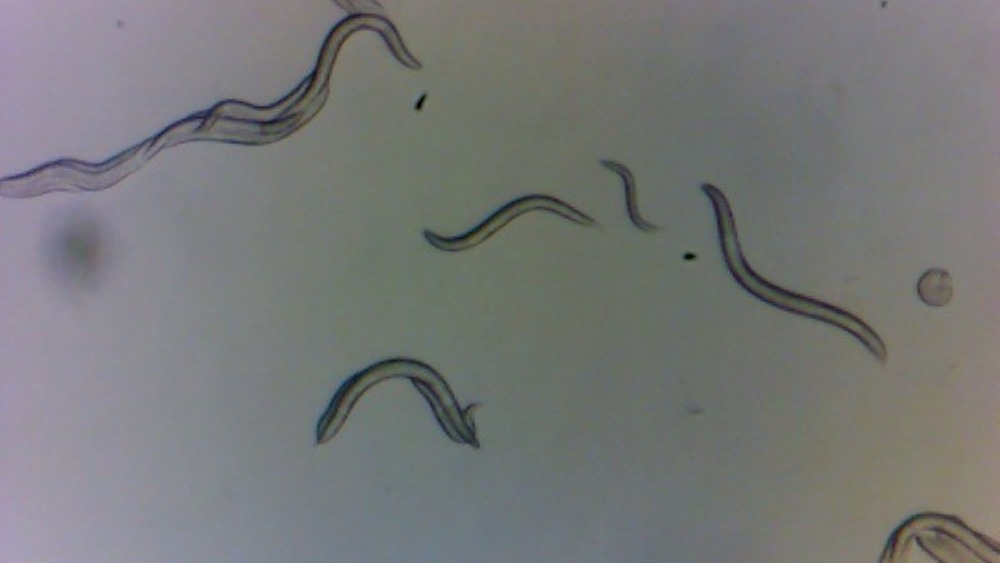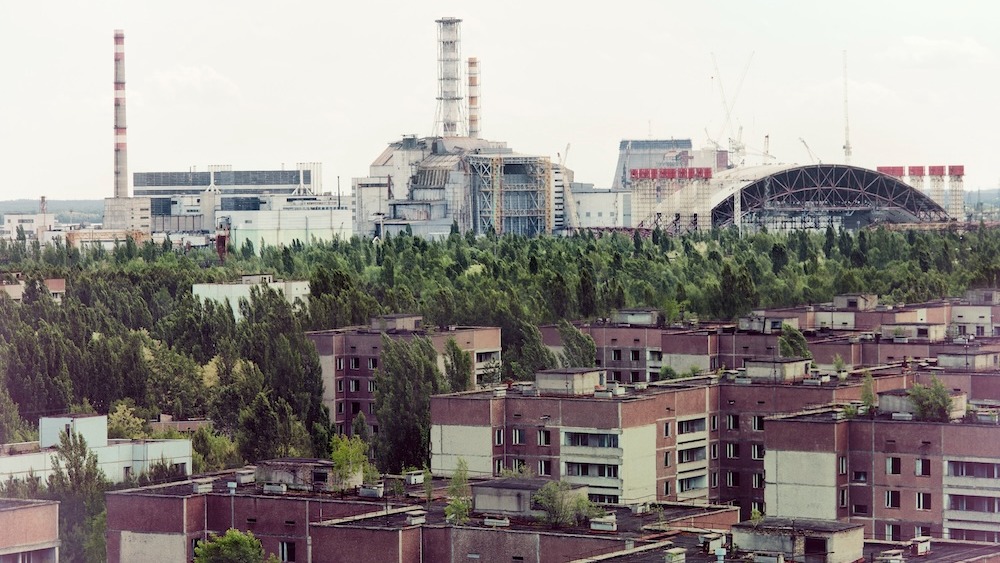Chernobyl worms appear unaffected by radiation from world's worst nuclear disaster
Microscopic worms in Chernobyl remain unscathed despite having been long exposed to radiation.

Tiny worms in the Chernobyl Exclusion Zone (CEZ) in Ukraine are thriving despite being in an area marked by high levels of radiation, and scientists think their resilience could provide insights for cancer research in humans.
Researchers traveled to the CEZ and collected microscopic worms of the species Oscheius tipulae. Upon analyzing these worms, which live in the fallout of the Chernobyl (or Chornobyl) nuclear disaster, scientists discovered that their genomes — the complete set of genes that make up an organism — have not been damaged. This is despite generations of the animals being exposed to radiation, according to a study published March 5 in the journal PNAS.
"Chornobyl was a tragedy of incomprehensible scale, but we still don't have a great grasp on the effects of the disaster on local populations," study lead author Sophia Tintori, a postdoctoral associate in the Department of Biology at New York University, said in a statement. "Did the sudden environmental shift select for species, or even individuals within a species, that are naturally more resistant to ionizing radiation?"
Scientists sequenced the genomes of 15 of the CEZ worms exposed to different levels of radiation, along with five from other parts of the world, and were unable to detect any clear signs of radiation damage in the worms from the CEZ. These results are in stark contrast to other animals, including frogs, which have changed physically after radiation exposure at the site.
"This doesn't mean that Chornobyl is safe — it more likely means that nematodes are really resilient animals and can withstand extreme conditions," Tintori said. "We also don't know how long each of the worms we collected was in the Zone, so we can't be sure exactly what level of exposure each worm and its ancestors received over the past four decades."
Researchers wondered if this was simply a case of the worms being particularly adept at repairing their DNA.
Get the world’s most fascinating discoveries delivered straight to your inbox.
To find out, they let the 20 worms breed in the lab, then tested their descendants to see how they responded to exposure to various chemicals that damage DNA.

The lineages, or strains, differed in how well they could resist DNA mutation in response to the chemicals — but there was no correlation in how well the worms resisted DNA damage and the levels of radiation their ancestors were exposed to.
This suggested that the Chernobyl worms were not "necessarily more tolerant of radiation and the radioactive landscape has not forced them to evolve," according to the statement.
Instead, some other factors, not yet identified, may explain why some worms are better at resisting DNA damage than others. The study authors now want to investigate what those factors are and whether they could shed light on why some people are more susceptible to cancer than others.
"Now that we know which strains of O. tipulae are more sensitive or more tolerant to DNA damage," Tintori said, "we can use these strains to study why different individuals are more likely than others to suffer the effects of carcinogens."
Jennifer Nalewicki is former Live Science staff writer and Salt Lake City-based journalist whose work has been featured in The New York Times, Smithsonian Magazine, Scientific American, Popular Mechanics and more. She covers several science topics from planet Earth to paleontology and archaeology to health and culture. Prior to freelancing, Jennifer held an Editor role at Time Inc. Jennifer has a bachelor's degree in Journalism from The University of Texas at Austin.
 Live Science Plus
Live Science Plus





